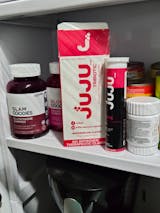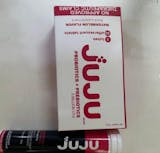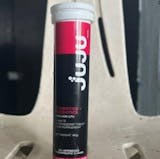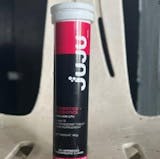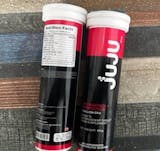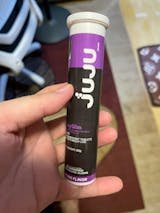Staying hydrated is more than just quenching your thirst; it can actually play a big role in helping you lose weight. Water is essential for many body functions, and drinking more of it can lead to healthier habits and better results on the scale. This article explores how drinking more water can support your weight loss journey through various methods such as appetite control, metabolism boost, and improved exercise performance.
The Role of Water in Weight Loss

Water plays a crucial role in helping you lose weight. Staying hydrated can significantly impact your weight loss journey. Here are some key points to consider:
How Water Affects Metabolism
- Drinking water can boost your metabolism, helping you burn more calories.
- Studies show that drinking cold water may increase calorie burning slightly due to the body working to warm it up.
- Hydration is essential for the body to metabolize fat effectively.
Water and Appetite Suppression
- Sometimes, people confuse thirst with hunger. Drinking water can help you feel full, reducing unnecessary snacking.
- A study found that drinking water before meals can lead to lower calorie intake.
- Keeping hydrated can help control cravings and support weight loss efforts.
Hydration and Fat Burning
- Water is necessary for lipolysis, the process of breaking down fat.
- Without enough water, your body struggles to metabolize stored fat and carbohydrates.
- Proper hydration supports overall fat burning and energy levels during workouts.
Staying hydrated is not just about drinking water; it’s about making it a part of your daily routine for better health and weight management.
By understanding the role of water in weight loss, you can make informed choices that support your goals. Remember, replacing high-calorie drinks with water can lead to significant long-term benefits for your weight loss journey!
How Drinking Water Can Suppress Appetite

Understanding Thirst vs. Hunger
Many people often confuse thirst with hunger. Drinking water can help you distinguish between the two. When you feel hungry, try drinking a glass of water first. This can help you avoid unnecessary snacking and reduce your overall calorie intake.
The Science Behind Water and Fullness
When you drink water, it fills up space in your stomach. This can lead to a feeling of fullness, which signals your brain to stop eating. Research shows that drinking water before meals can help you eat less. For example, people who drank two glasses of water before a meal ate about 22% less than those who didn’t.
Studies Supporting Appetite Suppression
Several studies support the idea that drinking water can suppress appetite:
- In a study, participants who drank 500 mL of water before meals lost weight over eight weeks.
- Another study found that drinking water before meals helped reduce calorie intake.
- A 2018 study suggested that drinking water before meals made people feel less hungry.
| Study Year | Participants | Water Intake | Result |
|---|---|---|---|
| 2014 | 50 females | 500 mL | Weight loss and appetite suppression |
| 2016 | Various | 2 glasses | 22% less food intake |
| 2018 | Average weight | Before meals | Reduced hunger |
Drinking water can be a simple yet effective way to manage your appetite and support your weight loss journey.
By incorporating more water into your daily routine, you can help control your hunger and make healthier eating choices.
Boosting Metabolism with Water
Water-Induced Thermogenesis
Drinking water can actually help your body burn more calories. When you consume cold water, your body works to warm it up to body temperature, which uses energy. This process is known as thermogenesis. For example, a study found that drinking about two cups of cold water can increase your metabolism by up to 30% for a short time.
Impact on Resting Energy Expenditure
Staying hydrated is important for your metabolism even when you're not exercising. When you're well-hydrated, your body can burn calories more efficiently at rest. Some studies show that drinking water can lead to a slight increase in the number of calories you burn while resting.
Studies on Metabolism and Water Intake
Research indicates that drinking water can help with weight loss. In one study, participants who drank water before meals lost more weight than those who didn't. Here are some key findings:
- Drinking 500 mL of water can increase energy expenditure by 2-3% for about 90 minutes.
- Replacing sugary drinks with water can lead to significant calorie savings.
- Increased water intake is linked to higher fat burning during exercise.
Staying hydrated is a simple yet effective way to support your weight loss journey. Drinking water supports weight loss plans by improving metabolism.
Replacing High-Calorie Drinks with Water
Reducing Liquid Calorie Intake
Drinking water instead of sugary drinks is a simple way to cut down on calories. By swapping high-calorie beverages for water, you can significantly lower your daily calorie intake. Here are some common drinks and their calorie counts:
| Drink | Calories per 12 oz |
|---|---|
| Regular Soda | 150 |
| Sweetened Iced Tea | 120 |
| Fruit Juice | 110 |
| Sports Drink | 100 |
| Water | 0 |
Benefits of Cutting Sugary Beverages
- Weight Loss: Studies show that replacing sugary drinks with water can lead to weight loss over time.
- Better Health: Reducing sugar intake can lower the risk of diabetes and heart disease.
- Improved Hydration: Water keeps you hydrated without added sugars or calories.
Long-Term Weight Loss Benefits
Switching to water can help you maintain a healthy weight. Research indicates that people who replace just one sugary drink a day with water can lose weight over several years.
Drinking water instead of high-calorie drinks can help you feel fuller and eat less, making it easier to stick to your weight loss goals.
In conclusion, making the switch to water is a small change that can lead to big results in your weight loss journey. Start today by choosing water over sugary drinks whenever you can!
Optimizing Workouts Through Hydration
Importance of Hydration During Exercise
Staying hydrated is crucial for anyone who exercises. Proper hydration helps your body perform better by keeping your blood volume steady, which is essential for delivering oxygen to your muscles. When you're well-hydrated, your body can cool itself effectively through sweating, reducing the risk of heat exhaustion.
Preventing Cramps and Fatigue
Drinking enough water can help prevent muscle cramps and fatigue during workouts. Here are some key points to remember:
- Drink water before, during, and after exercise.
- Keep water close by, especially in hot or humid conditions.
- Listen to your body; if you feel thirsty, drink up!
Enhancing Physical Performance
Hydration can significantly improve your workout performance. Here’s how:
- Energizes muscles: Water helps maintain the balance of fluids and electrolytes in your muscles, preventing fatigue.
- Supports recovery: Staying hydrated aids in quicker recovery after intense workouts.
- Boosts endurance: Proper hydration allows you to work out longer and burn more calories.
Staying hydrated is not just about quenching thirst; it’s about optimizing your entire workout experience.
| Fluid Needs | Females | Males |
|---|---|---|
| Daily Total | 11.5 cups | 15.5 cups |
| From Beverages | 9 cups | 13 cups |
By following these hydration tips, you can ensure that your workouts are effective and enjoyable!
The Science of Water and Fat Metabolism
Role of Water in Lipolysis
Water is crucial for the body to metabolize fat. By increasing your water intake, you can help the body convert fat into energy, resulting in weight loss. The process of breaking down fat, known as lipolysis, starts with hydrolysis, where water interacts with triglycerides to produce glycerol and fatty acids.
Hydration and Carbohydrate Metabolism
Staying hydrated is essential for burning both fat and carbohydrates. When the body is dehydrated, it struggles to metabolize stored fat effectively. This can lead to less energy being available for daily activities and workouts.
Animal Studies on Water and Fat Loss
Research involving animals has shown that increased water intake can lead to higher rates of fat loss. In one study, animals that had more water available experienced greater lipolysis compared to those with limited access to water.
| Study Type | Findings |
|---|---|
| Animal Studies | Increased water led to higher fat loss |
| Human Studies | Drinking water before meals reduced intake |
| Hydration Effects | Essential for fat and carb metabolism |
Staying hydrated is a simple yet effective way to support your weight loss journey.
In summary, drinking enough water is not just about quenching thirst; it plays a vital role in how our bodies process fat and carbohydrates. By ensuring proper hydration, you can enhance your metabolism and support your weight loss goals.
Practical Tips for Increasing Water Intake
Setting Daily Water Goals
To make sure you drink enough water, set a daily goal. Aim for at least 8 cups a day. You can adjust this based on your activity level and climate. Here are some tips to help you reach your goal:
- Keep a water bottle with you.
- Track your intake using a journal or an app.
- Set reminders on your phone to drink water throughout the day.
Incorporating Water-Rich Foods
Eating foods with high water content can help you stay hydrated. Consider adding these to your meals:
- Cucumbers
- Watermelon
- Strawberries
- Lettuce
- Oranges
These foods can contribute to your daily water intake and provide essential nutrients.
Using Apps and Reminders
Technology can help you remember to drink more water. Here are some ways to use it:
- Download a hydration app that tracks your water intake.
- Set alarms on your phone to remind you to drink water.
- Join online challenges that encourage drinking more water.
Staying hydrated is key to feeling good and can help with weight loss. Drinking water instead of sugary drinks can make a big difference.
Key Takeaways
- Drinking water can help you feel full, reducing the chances of overeating.
- Replacing sugary drinks with water cuts down on extra calories.
- Staying hydrated helps your body burn fat more effectively.
- Water supports your workouts by keeping you energized and focused.
- Setting daily water goals can make it easier to drink more throughout the day.
Final Thoughts
In conclusion, drinking more water can be a simple yet effective way to support your weight loss journey. Staying hydrated helps control your appetite, boosts your metabolism, and makes it easier to exercise. While water alone won't magically make the pounds drop, it plays a key role in a healthy lifestyle. So, if you're looking to shed some weight, consider making water your go-to drink. Remember, every little change counts!
Frequently Asked Questions
How does drinking water help with weight loss?
Drinking water can help you feel full, which may reduce how much food you eat. It can also help your body burn calories more efficiently.
How much water should I drink daily to lose weight?
Most experts suggest drinking about 9 cups of water a day for women and 13 cups for men, but this can vary based on your activity level and climate.
Can drinking water reduce my appetite?
Yes! Drinking water before meals can make you feel fuller, which may help you eat less.
Is it better to drink cold or warm water for weight loss?
Both cold and warm water can be beneficial, but cold water may help burn a few extra calories as your body warms it up.
What are some easy ways to drink more water?
You can carry a water bottle, set reminders on your phone, or eat foods that have high water content, like fruits and vegetables.
Does replacing sugary drinks with water help with weight loss?
Absolutely! Swapping sugary drinks for water can lower your calorie intake, which can help you lose weight over time.

